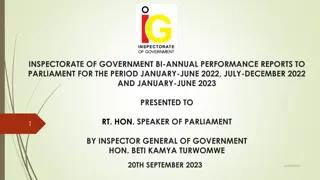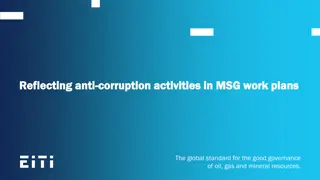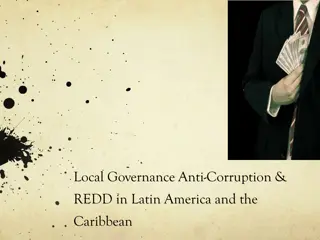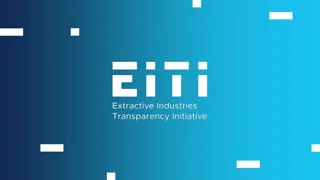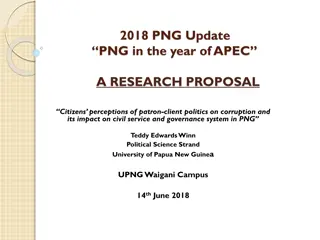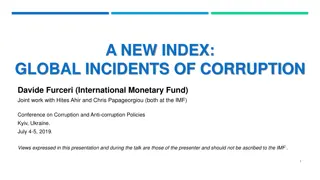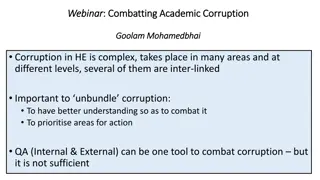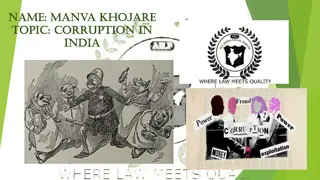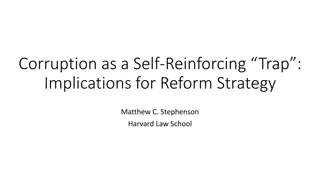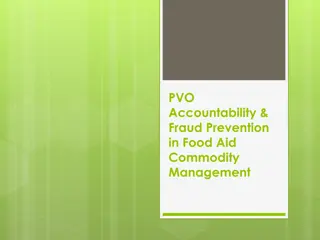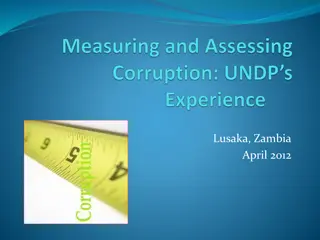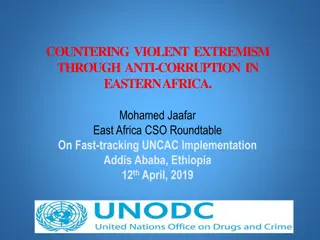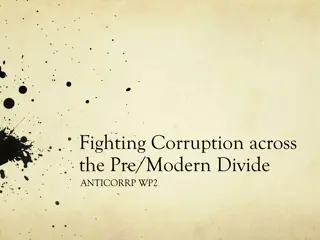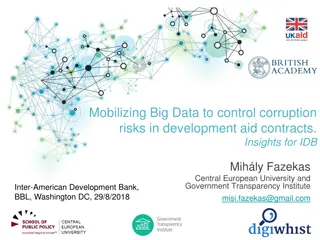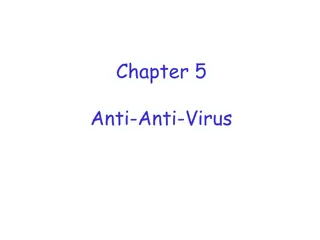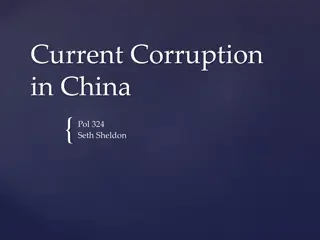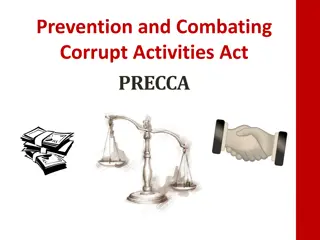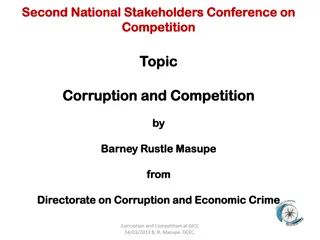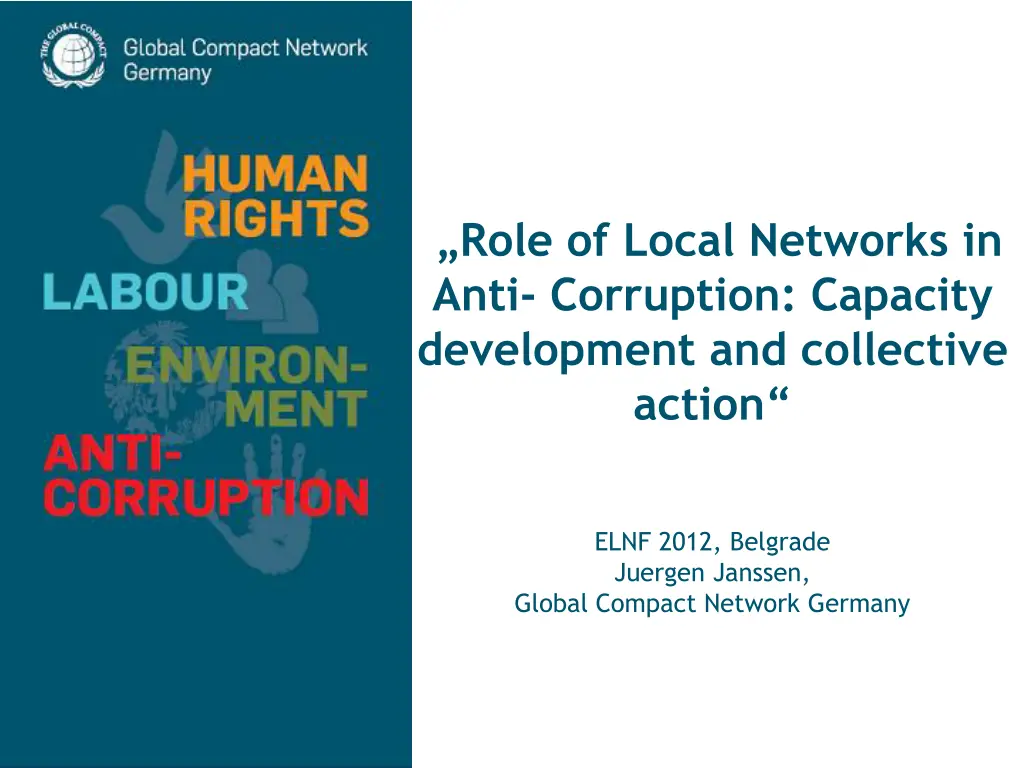
Local Networks in Anti-Corruption Initiatives
Explore the role of local networks in combating corruption, focusing on capacity development and collective action. Learn about anti-corruption efforts in Germany, including training programs, challenges, and the business case for collective action. Discover the activities of the Global Compact Network Germany in promoting ethical business conduct and cooperation within the UN Global Compact framework.
Download Presentation

Please find below an Image/Link to download the presentation.
The content on the website is provided AS IS for your information and personal use only. It may not be sold, licensed, or shared on other websites without obtaining consent from the author. If you encounter any issues during the download, it is possible that the publisher has removed the file from their server.
You are allowed to download the files provided on this website for personal or commercial use, subject to the condition that they are used lawfully. All files are the property of their respective owners.
The content on the website is provided AS IS for your information and personal use only. It may not be sold, licensed, or shared on other websites without obtaining consent from the author.
E N D
Presentation Transcript
Role of Local Networks in Anti- Corruption: Capacity development and collective action ELNF 2012, Belgrade Juergen Janssen, Global Compact Network Germany 27.06.2025 Seite 1
Agenda 1.Anti-Corruption in Germany 2.Activities of DGCN a) Learning b) Collective Action 3.Cooperation within the UNGC |2 27.06.2025
Anti-Corruption in Germany Developments & Challenges 14thon the TI Corruption Perceptions Index (2011) 4thon the Bribe Payers Index (2011) After the bribery scandal at Siemens, compliance measures have dramatically increased, esp. among the DAX-30 group of companies Controversy: Bundestag has not yet ratified UNCAC German companies and DGCN openly push for ratification Major challenges for companies: third-party due diligence & variations in country requirements and practice Current discussion (and action) focuses on multinational corporations; fighting corruption in SMEs is often neglected |3 27.06.2025
Learning: Activities of DGCN Translation of RESIST publication into German Tool for facilitating disclosure & reporting Training on the 10thPrinciple |4 27.06.2025
LEARNING Training on the 10th Principle of the GC Content National & International Legislation Current Developments in Compliance Components of an Anti-Corruption System; Managing Corruption Risk Third Party Anti-Corruption Due Diligence Controlling und Reporting Focus on SMEs Practical Tools will be presented Reality-Check of UNGC Risk Guide (Beta-Version) In cooperation with Humboldt Viadrina School of Governance & Transparency International |5 27.06.2025
CoP-Tool |6 27.06.2025
The Business Case for Collective Action |7 27.06.2025
Collective Action Business Integrity Initiative (planning phase) Aim (Working Draft) Support of ethical business conduct through an alliance of companies, business associations, civil society and public institutions in selected countries. Key Ideas Utilization of existing structures to achieve the broadest possible impact Collective action with support of the German government (BMZ) Participation of SMEs Capacity dvelopment, pooling of information, awareness raising Pilot Country: India (Alternatives: Thailand, Vietnam) |8 27.06.2025
Cooperation within UNGC Dialogue between (European) Networks on the 10th Principle Coordination with the Working Group on the 10th Principle Cooperation with Local Networks, e.g. in the context of the Project Promoting Collective Action through UN Global Compact Local Networks |9 27.06.2025
Thank you! Visit www.globalcompact.de |10 27.06.2025

